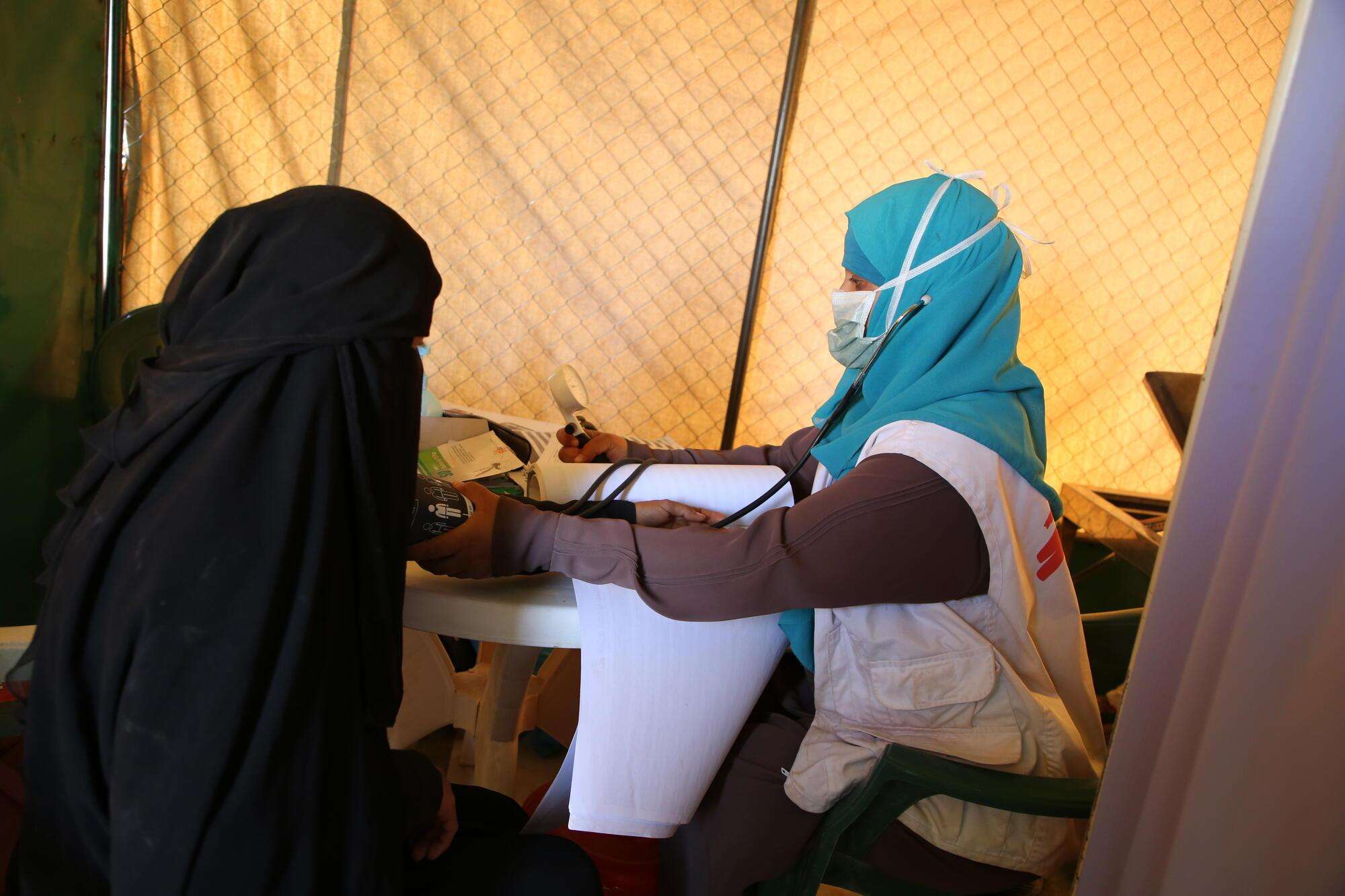NEW YORK/MARIB, YEMEN, OCTOBER 4, 2021—Four people—including two young children—were killed, and multiple people were injured in missile attacks in a residential area of Rawdah Jadidah in Yemen’s Marib governorate on October 3, said the international medical humanitarian organization Doctors Without Borders/Médecins Sans Frontières (MSF) today. MSF staff working in the emergency department of Marib General Hospital, in conjunction with other hospital staff, received 14 people; eight of whom were in critical condition, while four were dead upon arrival.
Almost all patients received at the hospital were civilians, including women and children. MSF teams received two children who died of their injuries. Among the injured MSF treated were a pregnant woman with blast injures to her chest, a child with multiple shrapnel wounds, and a two-month-old baby with a traumatic brain injury. The pregnant woman and baby were later transferred to a hospital that specializes in maternity and pediatric care.
“MSF is deeply concerned about the impact of the recent clashes in Marib governorate on civilians,” said Allen Murphy, MSF’s project coordinator in Marib. “After nearly seven years of conflict, yesterday’s missile attacks are yet another example of the appalling effects of the conflict on the population of Yemen. We strongly urge the warring parties to avoid any civilian injuries or deaths during the ongoing clashes in Marib as well as in the future.”
Marib is witnessing a new intense wave of conflict in the city and surrounding area. Over the past two weeks, the Marib General Hospital has received hundreds of war-wounded patients, including civilians. MSF calls on the warring parties to respect International Humanitarian Law that ensures the safety of civilians during conflict.
Before the start of the conflict, Marib was home to almost 400,000 people, according to local authorities. Now, it hosts nearly 2.7 million people, including internally displaced people from elsewhere in the country and many who have been displaced by conflict several times. The recent escalation of violence could risk forcing more people into displacement and increase the already unmet humanitarian needs in terms of shelter, food, water, protection, and health care.
MSF has been supporting Marib General Hospital’s emergency room since April 2021 with doctors, nurses, and a surgeon. MSF also runs mobile clinics—covering a total of eight locations in Marib—to provide primary health care services to internally displaced people, migrants, and the muhamasheen community.
MSF first started working in Yemen in 1986 and has been present in the country continuously since 2007. MSF teams currently work in 11 hospitals and provide support to another 16 health facilities across 13 governorates. All of MSF services in Yemen are supported by private donations without any contributions from governments.
Yemen: Civilians injured and killed by missile attacks in Marib

Yemen 2021 © Nuha Haider/MSF



